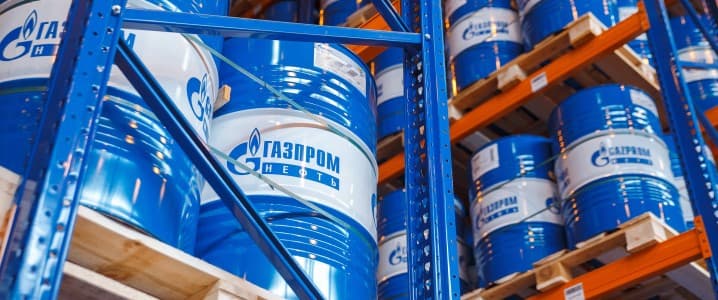Russia’s Gazprom Neft reported a steep first-half earnings decline as taxes and weaker ruble realizations squeezed margins across upstream and refining. The producer’s net profit fell 54% year-on-year to 150.5 billion rubles, while the board backed a 17.3-ruble per-share interim payout, according to its first-half results, Reuters reported.
The company said it continued to prioritize project execution across its core oil and condensate hubs, but external headwinds, including export duties, mineral extraction levies, and transport costs, tempered earnings quality. Russian business daily Kommersant noted the dividend decision alongside management’s emphasis on balance-sheet discipline in a weaker pricing environment, citing a payout policy of at least 50% of IFRS profit.
Top-line performance was softer. First-half revenue slipped 12% to 1.775 trillion rubles, while adjusted EBITDAdropped 27.6% to 510.1 billion rubles. Management also trimmed capital expenditures 15.8% year-on-year to 222.1 billion rubles, reflecting a recalibration of spend after a heavy build program in 2024 and early 2025.
Quarterly momentum had already cooled. In May, the company’s Q1 profit fell 42% year-on-year to 92.6 billion rubles as weaker product cracks and a stronger domestic tax take offset steady operational throughput. Despite this, Gazprom Neft continued to advance brownfield recovery and modernize refining assets to protect unit cash costs.
Operationally, the group pointed to higher hydrocarbon output and throughput in the period, while reaffirming a focus on technology to lift recovery factors and processing yields. The official company statement summarized revenue at 1.775 trillion rubles, adjusted EBITDA at 510.1 billion rubles, and net profit at 150.5 billion rubles, mirroring figures shared with investors.
Investors will watch the ruble path, refining margins, and any modifications to Russia’s fiscal regime into the second half.
Western sanctions remain a structural drag, forcing Russian producers to reroute crude and refined products away from Europe toward Asian buyers at discounted rates. That shift has increased logistics costs and narrowed netbacks, compounding the impact of domestic fiscal measures such as export duties and higher mineral extraction levies.
By Charles Kennedy for Oilprice.com
More Top Reads From Oilprice.com

